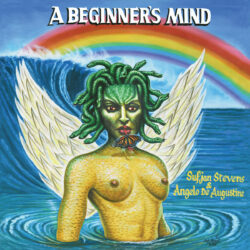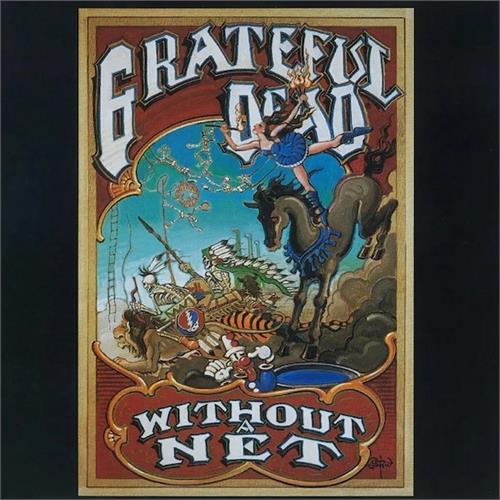A Beginner’s Mind
Label: Asthamatic Kitty
Format: LP
Genre: Indie Rock, Rock
$26.99
Availability: In stock
It’s been said that writing about music is like dancing about architecture (impossible and absurd). But what about singing about movies?
Sufjan Stevens and Angelo De Augustine have paired up for a collaborative project that does just that. A Beginner’s Mind is their debut album that contains 14 songs (loosely) based on (mostly) popular films. The source material is highbrow, lowbrow, and everything in between. A cornerstone of zombie horror (Night of the Living Dead), a touchstone psychological thriller (Silence of the Lambs), a high-octane action flick (Point Break), and a Bette Davis classic (All About Eve) are inspiration for songs that seek to investigate the meaning of life, the meaning of death, and everything in between. The movies are only catalysts; the songs take liberty with their source material, allowing for bold tangents, often running wild with existential inquiry. John Carpenter’s The Thing inspires a song that explores the disease of social paranoia, while Wim Wenders’ Wings of Desire is the building blocks of a song about human suffering and isolation. The music is folksy, sweet, sincere and harmonically effervescent—Simon & Garfunkel with New Age flourishes. There’s an S&M dirge inspired by Hellraiser III, a peppy campfire song based on the direct-to-video cheerleader rom-com Bring It On Again, and a fem-power lo-fi folk anthem based on Spike Lee’s She’s Gotta Have It. This album runs the gamut and has fun with it, even while its songwriters remain fully rooted in the melancholy folk idioms they are known for.
What began as a superficial conceit became a more serious investigation when Stevens and De Augustine scheduled a month-long sabbatical in upstate New York to work together in a friend’s cabin. Their method was simple: watch films at night, sketch songs in the morning. They wrote in tandem—one person writing a verse, the other a chorus, churning out chord progressions and lyrical tapestries willy-nilly, often finishing each other’s sentences in the process. Rigorous editing and rewriting ensued. The results are less a “cinematic exegesis” and more a “rambling philosophical inquiry” that allows the songs to free-associate at will. Plot-points, scene summaries, and leading characters are often displaced by esoteric interpolations that ask the bigger question: what does it mean to be human in a broken world?
Stevens and De Augustine wrote everything with a deliberate sense of shoshin—the Zen Buddhist concept for which the record is named and an idea that empowered the pair to look for and write about unlikely inspiration without preconceived notions of what a film had to say. (The I-Ching and Brian Eno’s Oblique Strategies also served as incentives along the way.) The movies became rhetorical prompts in a meta-textual game of broken telephone, with the songwriters letting their distinct reactions and creative instincts govern their process. The underlying objective was empathy and openness, absent of judgment: to observe what is pure and good—or seemingly dark and villainous—with the eyes of a child.
In Ghana during the late ’80s, a novel “mobile cinema” culture emerged when enterprising film fans screened Hollywood blockbusters in the backs of pick-up trucks using portable generators. To advertise the movies, Ghanaian artists painted alternate posters, inspired only by the scant information they had about each film. A pioneer of this form—Daniel Anum Jasper—was commissioned by Stevens and De Augustine to paint a series of new works for A Beginner’s Mind (including covers for three 7-inch singles). Information about the project was deliberately kept vague so that Mr. Jasper could work without restraint. Mythical deities and monsters, zombies, skydivers and a celebrated American director (Jonathan Demme, to whom the album is dedicated) were submitted as visual cues. The resulting paintings are a graphic simulacrum for the same sense of wonder, wordplay, and intrigue that shape A Beginner’s Mind. By transforming old films into vital new songs (with new imagery), Stevens and De Augustine ask us to consider ourselves (and the world around us) from a previously unconsidered vantage point—a new way of seeing and hearing—an exercise that’s as necessary and relevant now as it’s ever been.






